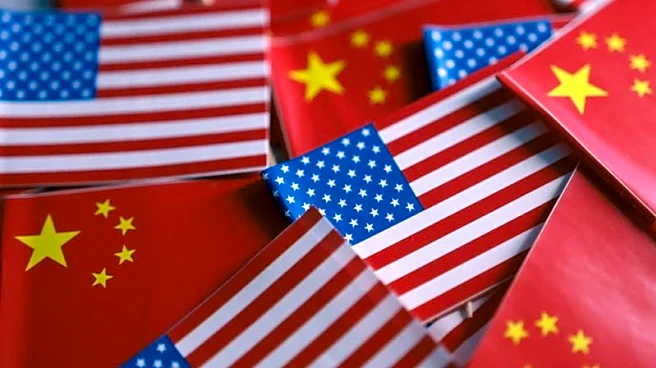Rapid Read • 8 min read
Switzerland's President Karin Keller-Sutter is leading a delegation to Washington in an urgent attempt to negotiate with the Trump administration over newly imposed U.S. tariffs. These tariffs, set at 39%, are significantly higher than those on European Union and British goods, and have surprised Swiss business leaders. The Swiss government aims to improve the tariff situation, as the new rates threaten industries such as chocolates, machinery, and watchmaking. Keller-Sutter, also Switzerland's finance minister, faced criticism for a last-minute call with President Trump before the tariff deadline expired. Trump mentioned the call, expressing dissatisfaction with Switzerland's previous tariff rates and citing a $41 billion trade deficit, although official figures show a $38.3 billion imbalance. Swiss officials argue that American goods face minimal tariffs in Switzerland, and emphasize Switzerland's role as a major investor in the U.S.
AD
The imposition of steep tariffs on Swiss exports could have significant repercussions for Swiss industries, potentially making their goods less competitive compared to EU products. This move may strain economic relations between Switzerland and the U.S., affecting trade and investment flows. The Swiss pharmaceutical industry, a major investor in the U.S., is exempt from these tariffs, but the situation could signal future pressures. The tariffs could lead to increased costs for U.S. consumers and businesses relying on Swiss products, impacting sectors like luxury goods and machinery. The negotiations are crucial for Switzerland to maintain its economic ties and avoid further economic disruptions.
Switzerland's Federal Council has expressed its eagerness to continue discussions with the U.S. and has developed new strategies for negotiations. The Swiss delegation aims to present a more attractive offer to address U.S. concerns and ease the tariff situation. The outcome of these talks could influence future trade policies and economic relations between the two countries. Swiss businesses are closely monitoring the situation, as the tariffs could affect their competitiveness and market access in the U.S.
The tariff dispute highlights the challenges smaller economies face when negotiating with larger, unpredictable partners like the U.S. under President Trump's administration. It underscores the importance of diplomatic agility and strategic economic planning for countries like Switzerland, which rely heavily on exports. The situation may prompt Swiss industries to diversify their markets and reduce dependency on the U.S., potentially leading to long-term shifts in trade patterns.
AD
More Stories You Might Enjoy












